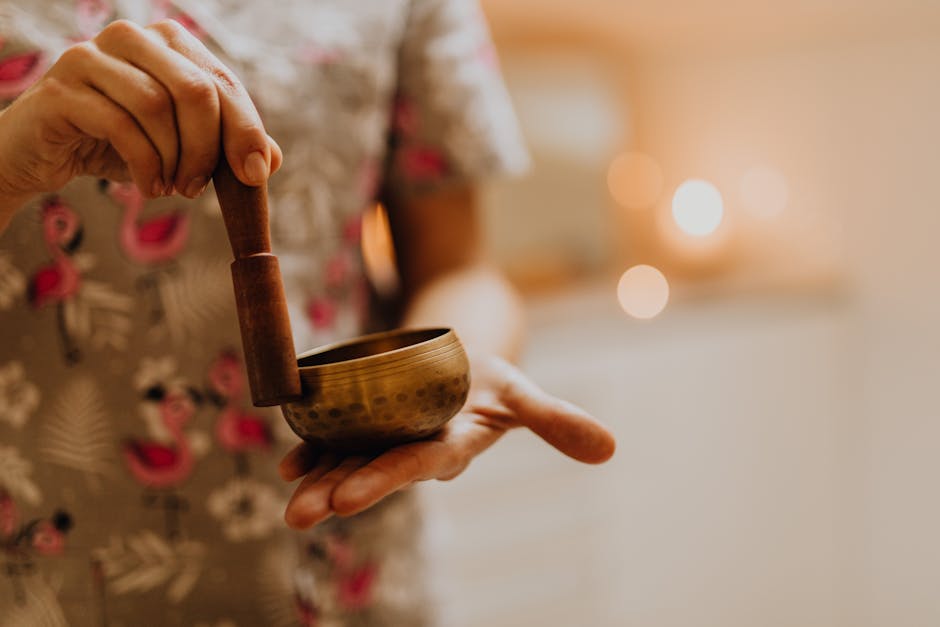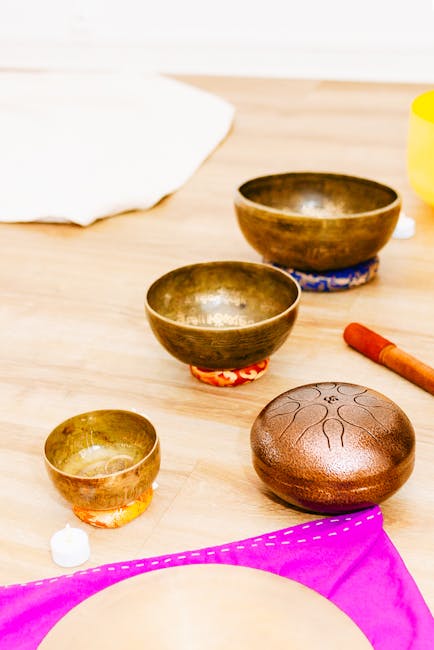The ancient practice of Qi Gong, a form of meditative movement, has been known to bring about a sense of emotional balance and tranquility. This blog post delves into the benefits of Qi Gong, particularly its impact on emotional health, and why it should be a part of your daily routine.
Key Takeaways
- Understanding the concept of Qi Gong and its types.
- The role of Qi Gong in promoting emotional stability.
- Techniques and practices in Qi Gong for emotional health.
- Psychological benefits of Qi Gong, including stress and anxiety reduction.
- Holistic health advantages of Qi Gong.
- Practical application of Qi Gong for everyday emotional management.
Introduction to Qi Gong
Definition of Qi Gong
Qi Gong, pronounced as “chee-gong”, is a mind-body-spirit practice that improves one’s mental and physical health by integrating posture, movement, breathing technique, self-massage, sound, and focused intent. It’s a component of traditional Chinese medicine that has been practiced for centuries for health maintenance, healing, and increasing vitality.
Overview of active (dynamic) and passive Qi Gong
Qi Gong is generally classified into two types: active (dynamic) and passive. Active Qi Gong involves specific movements or postures, while passive Qi Gong focuses on mind and breath control. Both types aim to cultivate and balance Qi, the life energy within us.

Qi Gong’s Impact on Emotional Balance
Role of Qi Gong in promoting emotional stability
Qi Gong can be a powerful tool for achieving emotional balance. It helps to clear out the emotional clutter, promoting a sense of peace and tranquility. The practice encourages the release of negative emotions and the cultivation of positive ones, leading to emotional stability and well-being.
Connection between physical movements and emotional health
The physical movements in Qi Gong are designed to promote the flow of Qi, or life energy, throughout the body. This flow of energy can have a profound impact on emotional health, helping to alleviate stress, anxiety, and other negative emotions.

Techniques and Practices in Qi Gong for Emotional Health
Overview of Qi Gong meditation
Qi Gong meditation is a practice that involves focusing the mind, regulating the breath, and performing gentle movements. It’s a way to cultivate a sense of inner peace and emotional balance. You can learn more about this and other mindfulness practices in our post on mindfulness and meditation for emotional well-being.
Differences between active and passive Qi Gong techniques
Active Qi Gong for engaging the body and mind
Active Qi Gong involves engaging both the body and mind through a series of movements. These movements are designed to stimulate the flow of Qi and promote physical and emotional health.
Passive Qi Gong for deep relaxation and mindfulness
Passive Qi Gong, on the other hand, focuses on achieving a state of deep relaxation and mindfulness. It involves techniques such as controlled breathing and mental imagery to promote a sense of calm and balance.

Psychological Benefits of Qi Gong
Stress and Anxiety Reduction
How Qi Gong meditation lowers stress levels
Qi Gong meditation can be a powerful tool for reducing stress. By focusing on the breath and performing gentle movements, the mind is able to shift away from stressful thoughts and towards a state of calm and relaxation. This can lead to a significant reduction in stress levels.
Impact on anxiety through regular practice
Regular practice of Qi Gong can also have a positive impact on anxiety. The mindfulness aspect of the practice helps to break the cycle of anxious thoughts, promoting a sense of peace and tranquility.
Enhancement of Focus and Mental Clarity
Methods used in Qi Gong to improve mental focus
Qi Gong uses a variety of methods to improve mental focus, including controlled breathing, mental imagery, and specific movements. These techniques help to clear the mind and improve concentration.
Role of mental clarity in emotional regulation
Mental clarity plays a crucial role in emotional regulation. By achieving a clear mind through Qi Gong, one is better able to manage and control their emotions.

Holistic Health Advantages of Qi Gong
Link between Qi Gong and reduced risk of chronic diseases
Research has shown a link between Qi Gong and a reduced risk of certain chronic diseases. This is likely due to the practice’s ability to reduce stress, improve mental health, and promote physical fitness.
Contribution of physical health to emotional well-being
Physical health and emotional well-being are closely linked. By promoting physical health through practices like Qi Gong, one can also improve their emotional well-being.
The holistic approach of Qi Gong integrating body, mind, and spirit
Qi Gong is a holistic practice that integrates the body, mind, and spirit. By focusing on these three aspects, Qi Gong promotes overall health and well-being.
Practical Application of Qi Gong for Everyday Emotional Management
Learning and practicing Qi Gong meditation
Learning and practicing Qi Gong meditation can be a powerful tool for managing emotions on a daily basis. It can help to reduce stress, improve mood, and promote a sense of balance and tranquility.
Tools and techniques for managing emotions
Breathing exercises
Breathing exercises are a key component of Qi Gong. They can help to calm the mind, reduce stress, and promote emotional balance.
Meditation routines
Meditation routines in Qi Gong involve focusing the mind, controlling the breath, and performing gentle movements. These routines can be a powerful tool for managing emotions and promoting emotional health.

Conclusion: The Comprehensive Benefits of Qi Gong
Summary of Qi Gong’s impact on emotional balance
In summary, Qi Gong can have a profound impact on emotional balance. Through its focus on mindfulness, controlled breathing, and gentle movements, Qi Gong promotes a sense of peace and tranquility, reduces stress, and improves emotional health.
Encouragement to incorporate Qi Gong into daily life for holistic health
We encourage you to incorporate Qi Gong into your daily life. Whether you’re seeking to reduce stress, improve emotional health, or simply cultivate a sense of peace and tranquility, Qi Gong can be a powerful tool. To learn more about how to get started, check out our post on how to meditate and achieve emotional balance.
For further reading, you might also be interested in our posts on Tai Chi and meditation and the benefits of laughter yoga for stress relief.
Remember, the journey to emotional balance is a personal one, and Qi Gong is just one of many paths you can take. Explore, experiment, and find what works best for you. Here’s to your emotional health and well-being!
Sources:
– National Center for Complementary and Integrative Health
– Harvard Health Publishing
– PubMed
Unveiling Serenity: The FAQ Guide to Qi Gong for Emotional Balance
What is Qi Gong and how does it relate to emotional balance?
Qi Gong is an ancient Chinese meditative practice that combines slow, deliberate movements, deep breathing, and focused intention to cultivate and balance Qi (life energy) within the body. It’s directly related to emotional balance by promoting a state of calmness, reducing stress, and enhancing mental clarity. Through the harmonization of body and mind, Qi Gong helps in managing emotions, leading to greater peace and emotional stability.
Can Qi Gong help reduce anxiety and depression?
Yes, Qi Gong can be an effective tool in reducing symptoms of anxiety and depression. The practice encourages relaxation, improves sleep, and boosts mood through the release of endorphins. Regular Qi Gong practice has been shown to lower levels of cortisol, a stress hormone, thereby alleviating anxiety and elevating feelings of well-being.
How often should I practice Qi Gong for emotional balance?
Consistency is key when practicing Qi Gong for emotional balance. A daily practice, even if it’s just for 10 to 20 minutes, can provide significant benefits. Over time, regular Qi Gong practice can help in cultivating a more resilient and balanced emotional state.
Do I need any special equipment to practice Qi Gong?
No special equipment is needed to practice Qi Gong. The practice is accessible to everyone and can be done anywhere there is enough space to move freely. Comfortable clothing that allows for movement is recommended, but there are no other specific requirements.
Is Qi Gong suitable for beginners or those with no experience in meditative practices?
Absolutely, Qi Gong is suitable for people of all ages and levels of fitness, including beginners with no prior experience in meditation or martial arts. There are many simple Qi Gong exercises that are easy to learn and can be modified to accommodate individual needs and limitations.
Can Qi Gong improve physical health as well as emotional well-being?
Yes, Qi Gong offers comprehensive benefits that extend beyond emotional well-being to include physical health. The gentle movements help to improve flexibility, balance, and strength. Additionally, Qi Gong can enhance the immune system, aid in pain management, and promote overall vitality.
Are there different styles of Qi Gong, and if so, how do I choose the right one for emotional balance?
There are numerous styles of Qi Gong, each with its own focus and techniques, ranging from medical Qi Gong designed for healing to martial Qi Gong aimed at enhancing physical strength. For emotional balance, practices that emphasize slow movements, deep breathing, and meditation are most beneficial. Exploring different styles and teachers can help you find the practice that resonates best with you.
What is the best time of day to practice Qi Gong for maximum emotional benefits?
Qi Gong can be practiced at any time of day, but many find that starting the day with Qi Gong helps set a positive tone, promoting calmness and mental clarity throughout the day. Alternatively, practicing in the evening can help unwind and release the stress of the day, aiding in a restful sleep. Experiment with practicing at different times to see what works best for you.



